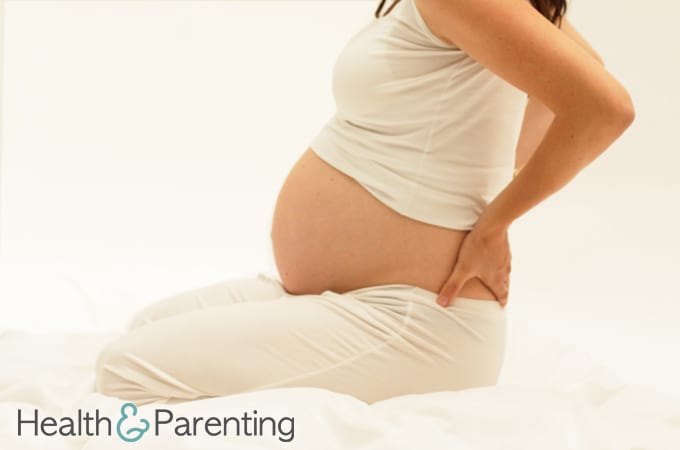Sciatica is the name given to pain caused by the compression or irritation of the sciatic nerve. The sciatic nerve runs from the back of your pelvis, through your buttocks, and all the way down to your feet. When the sciatic nerve is compressed or irritated, you may feel pain in your lower back radiating down to your calf. Some people experience mild discomfort, but others find sciatica to be very painful.
Sciatica during pregnancy
The sciatic nerve runs underneath your uterus. Towards the end of the pregnancy, the pressure of your growing uterus can put pressure on the sciatic nerve. In some cases, sciatica may appear earlier in the pregnancy, especially if you have a history of spinal disorders.
Symptoms of sciatica
Possible symptoms of sciatica include:
- pain radiating from the lower back, buttocks and legs – this pain may be worsened by coughing, sneezing and laughing
- pins and needles in the foot, leg or lower back
- numbness in the foot, leg or lower back
- muscle weakness in the foot, leg or lower back
- shooting pain in the lower back or buttocks
Sciatica treatment during pregnancy
In some cases, sciatica pain disappears by itself in a matter of hours, days or weeks. In some cases, the sciatica may last longer than 12 weeks, this is known as persistent sciatica. The following self-help tips may help you to relieve the discomfort caused by sciatica:
- apply an ice pack for 10 minutes
- apply a heat compress for 10 minutes
- wear flat, comfortable shoes
- avoid heavy lifting
- maintain good posture
- use a rolled up hand towel in the arch of your back to help you to maintain good posture when seated
- try not to stay in the same position for long periods
- drink plenty of water
- use extra pillows to support the weight of your bump in bed
- take regular light exercise, such as swimming
- have a massage from an experienced therapist to relieve some of the pressure on your sciatic nerve
It is important to inform your healthcare provider if you experience sciatica during pregnancy. If the pain is preventing you from going about your daily business, your healthcare provider may refer you to a specialist physiotherapist for further advice.
Sciatica and childbirth
Most women who experience sciatica during pregnancy will find the condition has resolved itself before they go into labour. If you are suffering from sciatica during childbirth, you may need to adjust your birth plan accordingly. Water births can allow movement without putting pressure on the sciatic nerve, so this may be an option you wish to consider. Speak to your healthcare provider about how sciatica could affect your birth.
Written by Fiona, proud owner of a toddler, @fiona_peacock
This information is not intended to replace the advice of a trained medical doctor. Health & Parenting Ltd disclaims any liability for the decisions you make based on this information, which is provided to you on a general information basis only and not as a substitute for personalized medical advice. All contents copyright © Health & Parenting Ltd 2017. All rights reserved.










